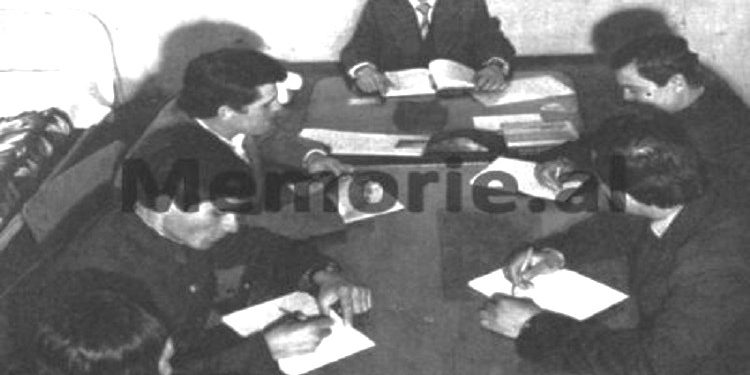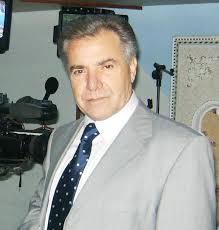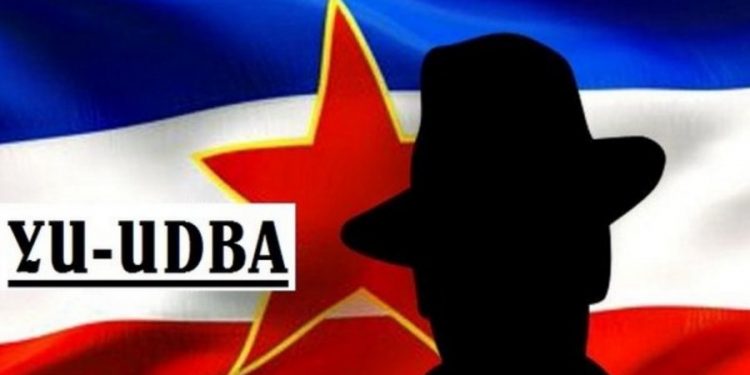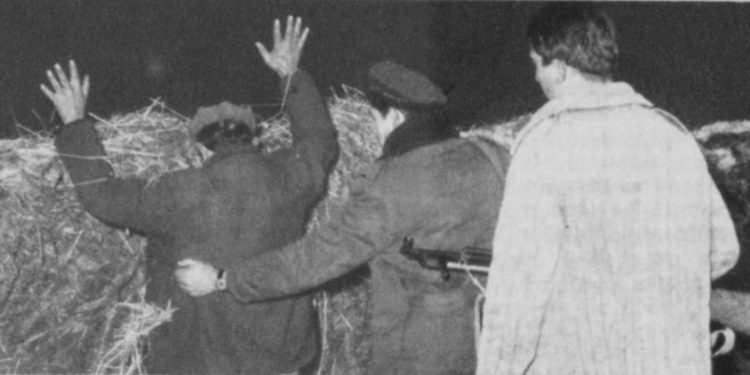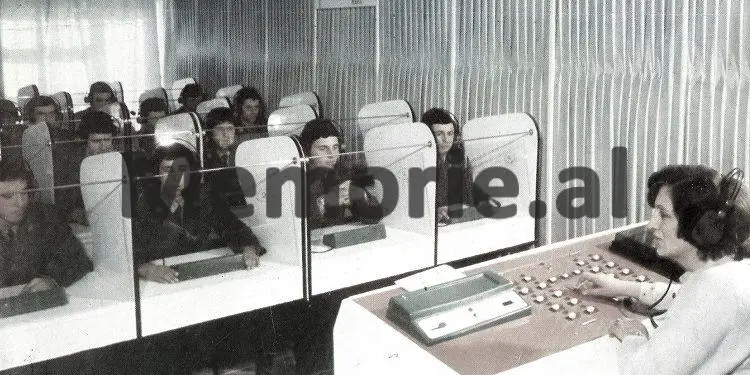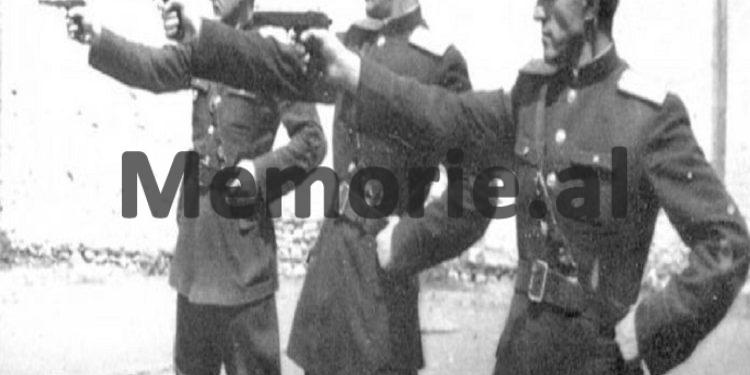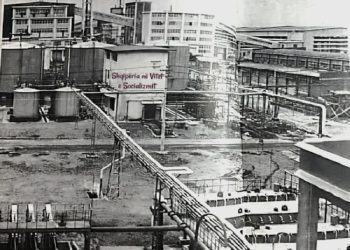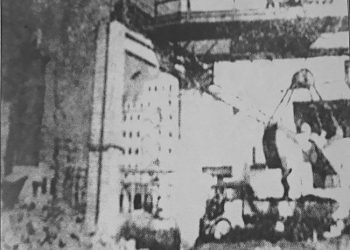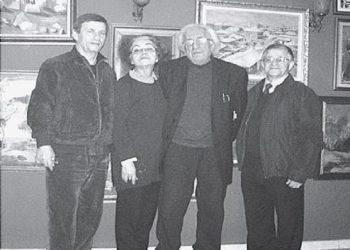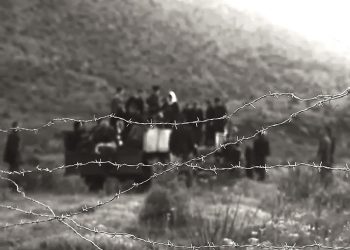By Nafi Çegrani
Part Two
Memorie.al / The history of Albanians is full of figures who lived between shadow and light, between injustice and the effort to save at least some of the dignity of a nation exiled for centuries. In this long labyrinth, where borders were drawn with violence and injustice by the hands of great powers there was peopling who, though silent, left indelible marks in the defense of national interest. One of these is Colonel Sali Dani, who was not only an intelligence officer but, above all, a well-formed Albanian with a clear vision and a heart aflame for the Homeland.
The Conference of London in 1913 was the beginning of the modern tragedy. In the name of a fragile European peace, the great powers-England, France, Russia, Austro-Hungary, and Italy – cut into the living flesh of a nation, handing its richest lands to its neighbors. Kosovo and other territories were given to Serbia, Chameria was given to Greece, and the Highlands were annexed to Montenegro, while the areas in Macedonia remained under Slavic rule. Thus, Albanians became the most divided people in Europe, dispersed across five Balkan states.
These divisions were not simply a matter of borders; they were wounds that tore apart the culture, language, economy, and the very national consciousness. And to reinforce this injustice, the secret service apparatuses of the neighbors were activated, working tirelessly to extinguish any aspiration for unification. The Yugoslav UDBA and the military KOS took on the role of keeping Albanians in Kosovo and Macedonia under control, using the most brutal violence. The Greek Asfalia, on the other hand, continued its terror in Chameria, burning towers and erasing Albanian traces.
But the responsibility of the great powers doesn’t stop in 1913. Even during the 20th century, Western diplomats often chose false stability over justice. In the name of geopolitical balance, they supported Yugoslavia as a “guardian” against the communist East, turning a blind eye to the oppression of Albanians. This international silence was another form of violence, which denied Albanians their voice and legitimized permanent injustice.
Figures like Colonel Sali Dani and many others I have mentioned above had a dual mission. On one hand, they faced foreign apparatuses that aimed to divide and extinguish Albanian resistance. On the other hand, they were aware that they were confronting a system of international injustice, where the Albanian nation was always seen as a small, neglected factor, sacrificed for the interests of others.
What made these men special was that they never submitted to this logic. In their hearts, they kept an ideal alive: the unification of Albanian lands under one flag, the revival of a whole, dignified, and free Albania. Although they knew that the great powers were often blind to our pain, they did not lose hope and did not let the fire of resistance die out.
In this sense, their work was also a form of silent protest against international injustice. Every report they wrote, every agent they exposed, every piece of information they brought to the Albanian state was a stone thrown against the wall of historical injustice. They knew that they might not see the unification realized, but they still considered it their duty to keep the idea of it alive. In those prisons, where the night had no morning and where time seemed to hang suspended over crushed souls, I understood more deeply what it means to be Albanian.
I saw people there who had only one “fault”: their love for the homeland, the search for freedom, and mentioning the name of Kosovo as an inseparable part of our nation, which I have experienced the cruelty of in my veins since 1981, as a former official of the communist Yugoslav SDB who had fled to America, for years and years I have personally experienced what other Albanians had once experienced in prisons, in internment, in exile.
And it was precisely there, between the damp walls and cold shackles that my mind turned to figures like Colonel Sali Dani, to Marko Laçka, Galip Sojli, Ramazan Domi, and many others. They had fought with the weapons of intelligence, with the wisdom of information, and with the loyalty of silence. I, like many others, fought with patience, with dignity, and with the refusal to break my spirit. In this bitter parallelism, I understood that the battle of the Albanian nation was not waged only on the borders protected by intelligence officers, but also in the prisons where they tried to extinguish our voice.
The prisons were a second front, just as important as the battlefields of covert espionage. On one side, intelligence professionals fought to prevent the enemy’s infiltration; on the other, we political prisoners fought to prevent the breaking of the Albanian spirit.
I knew I was there as a result of UDBA’s plans, which sought revenge against me for my political and national stances. But I chose not to submit. And this choice, however painful, made me understand even more the mission of figures like Sali Dani: to never give up, neither in the face of violence nor in the face of injustice.
Thus, my personal experience was not separate from the wider history. It was a natural continuation of the drama of our nation: a drama where every Albanian who does not forget himself is condemned to suffer. But at the same time, it was also a testimony that this nation has people who do not bend, who do not abandon their ideal, who carry the burden of history on their shoulders as a heavy cross, but also as a sacred trust.
And today, when I remember those dark days, I realize that in prisons we were not alone: there, with us in spirit, were also those who fought outside the prisons, in secret offices, on dangerous borders, in invisible battles. It was an unannounced coexistence of fates: they fought so that the enemy would not destroy us from the outside; we fought so that the Albanian spirit would not be destroyed from within.
The Moral Legacy of Colonel Sali Dani and his Generation
History is a mosaic composed of human fates, of courageous actions, and of secret sacrifices that often do not receive the light they deserve. In this mosaic, figures like Colonel Sali Dani, as well as his companions, are the most precious stones, because upon them is built not only the national memory but also the morality of future generations.
Sali Dani was not just a professional in intelligence, a silent master of conspiracy and information; he was a man with a pure soul and a clear vision for the future of the nation. Every action of his, every piece of information gathered, every measured step in the labyrinths of espionage, was closely linked to the great cause of national unification. He did not see himself as an individual separated from history, but as part of a long chain of efforts, where each link had its own sacred duty.
Starting from these motives, I myself, with sincere thoughts and with the conviction that the truth must not be silenced, have decided to describe these stories in my books. In the work “Stuhia e Bosforit” (The Storm of the Bosphorus) and Book II, “Heshtja e fshehtë” (The Secret Silence), but also in previous books, I have written by removing the chauvinist mask from the heads of the UDBA, like the criminal Kole Ilievski and others, highlighting their true faces, their treachery and intrigues, the open tendencies that have broken the Albanian spirit.
On one side they were and had created-the underground Slavic-Russian and Greek intelligence agencies, with their dark mission to erase the traces of our nation, to fragment the Albanian lands, to burn the towers and graves of Chameria, to poison every hope and triumph that was born in Kosovo.
On the other side were we-Albanians of blood and veins, with people who, like Sali Dani, worked silently, not for narrow personal interests or to fill their suitcases with dollars, but for a greater vision: the united and free nation with its own ethnic lands, as I have also written in the book titled “Platforma e strategjisë Kombëtare shqiptare” (The Platform of the Albanian National Strategy).
…The actions of Albanian intelligence, embodied by figures like Sali Dani, were deeply humane, based on a great love for life, for humanity, and for freedom. They did not fight for revenge, but for justice; they did not spy out of hatred, but for the survival of their nation.
The actions of the foreign intelligence agencies, in contrast, were biased, loaded with primitive hatred, and with the clear aim of destroying Albanian culture, language, and identity. They were a continuation of the logic of empires that have always seen Albania as a pawn in their games.
Therefore, the moral legacy of Sali Dani lies not only in his concrete actions but in the spirit he represents: in the belief that even in the face of great forces, an honest and dedicated person can make a difference. He is living proof that the Albanian is not just a victim of history, but also an actor in it; not only subdued by the great powers but also a challenger of them.
This legacy should not remain only in the silent memory of archives, or only in secret narratives. It must become part of our national consciousness, be included in school books, in public narratives, in the inspiration of our youth. Because without these figures, our history would be poorer, fragmented, and stripped of dignity.
In my writings, I have aimed to do just this: to build a bridge between the silent past and our present, so that future generations understand that freedom and dignity are not foreign gifts, but fruits of the blood and sacrifice of our best people. This is why my books are not just personal narratives, but also a call for national consciousness.
Because Sali Dani and his generation are not just names to be mentioned; they are a mirror in which each of us must see ourselves, a moral compass that reminds us that, even in the greatest darkness, the Albanian can remain a light.
The Trust of History
Every book written about the history of Albanians is a living testimony of what we dare not forget. This book, titled “Hijet e fshehta” (The Secret Shadows), is not merely a narrative about espionage and conspiracy on the horizons of the Balkans; it is a mirror where the contrast between darkness and light, between treachery and loyalty, between those who tried to destroy our nation and those who guarded it like the apple of their eye, is clearly seen. They were not just cold professionals of intelligence, but people with great souls, who sacrificed everything for a higher trust: the Albanian identity.
On the other hand, we have seen how foreign intelligence agencies-the Yugoslav UDBA, the military KOS, the Greek Asfalia, and all the mechanisms of the Slavic-Russian underground-have acted with a primitive hatred and with a single goal: to undo the Albanian nation. And it was not just them.
The great powers, who often speak in the name of democracy and justice, have borne heavy responsibility in our historical fragmentation and division. They have set borders where they shouldn’t have, have remained silent in the face of injustice, and have often compromised with chauvinists, leaving the Albanian to survive in blood and poverty.
But what makes this story even greater is the fact that, despite everything, the Albanian has not been extinguished. Even in the darkness of prisons, even in endless exile, even under the threat of weapons and intrigues, he has kept a light alive that does not go out. This light is the light of trust, the light of an ideal that knows no borders: national unification and complete freedom.
For this reason, I, as an author and witness, have not aimed with this book to incite hatred toward our neighbors, nor to seek what is not ours. My goal has been and remains: to seek what is ours, to defend our historical right, to testify that the Albanian cannot always remain a hostage to foreign games.
Where time stood still, and where pain was the only companion, I understood better than ever that the Albanian cause is not a distant idea, but a reality that requires blood, patience, and sacrifice. And precisely for this reason, when I write about Sali Dani and his comrades, I am not just talking about the past; I am talking about a mission that continues. / Memorie.al




